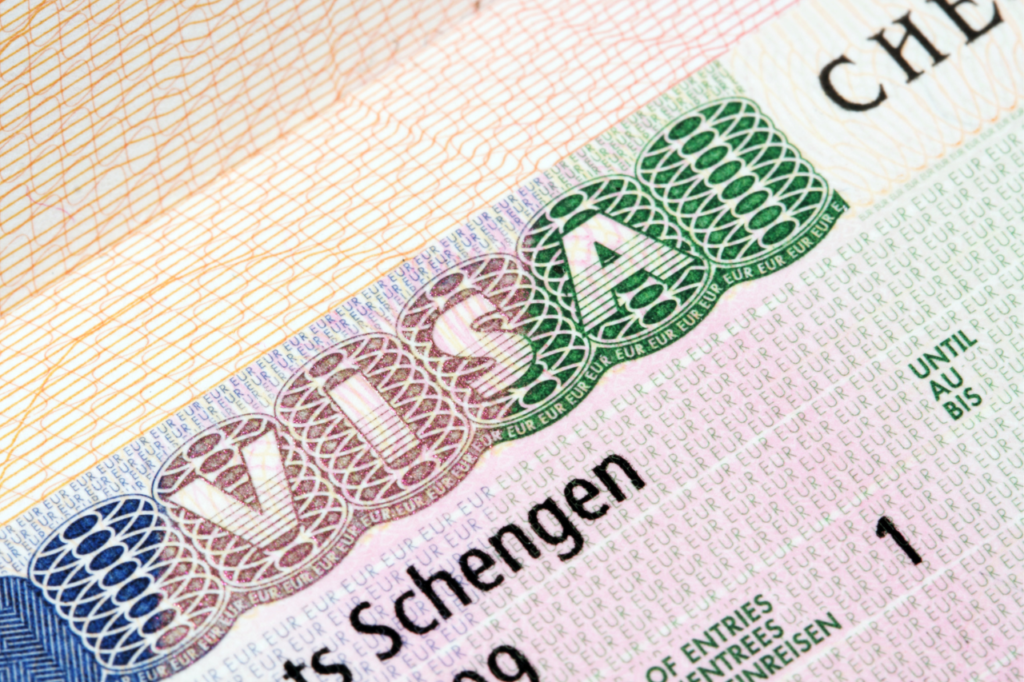Europe’s Schengen Area is a popular place that adventurists may want to consider, but safety is essential, and you should do a lot of thinking about unfortunate things that may happen to you there like accidents or medical emergencies. You should have travel insurance to gain peace of mind and financial benefits while applying for a Schengen visa it is mandatory. This guide explains everything you need to know about it: requirements, benefits, and costs.
Schengen Visa Insurance Overview
When visiting the Schengen Area (26 European countries), travelers must have travel medical insurance. This insurance covers unexpected medical costs for accidents or emergencies. It’s mandatory for Schengen visa applicants, regardless of their reason for travel – be it business, tourism, studies, holidays, or other purposes.
Understanding Visa Insurance Requirements
To meet the requirements for a Schengen visa, your insurance must meet specific criteria:
Minimum Coverage Amount: Your insurance policy needs to cover medical costs of at least 30,000 EUR (approximately 33,100 USD as of August 2023).
Coverage Area: The insurance should apply to all Schengen Area member states.
Comprehensive Benefits: Your policy should include coverage for medical repatriation, urgent medical attention, emergency hospital treatment, and in tragic circumstances, even death-related expenses.
Who Needs It?
For Schengen Visa Applicants
If you’re applying for a Schengen visa, having travel insurance is mandatory. This insurance must cover your entire stay in Europe to ensure your well-being and protect against unexpected medical expenses.
Recommended for Other Travelers
While not required for visa-free travelers to the Schengen zone, travel health insurance is still recommended. It adds an extra layer of protection and peace of mind during your journey, even though it’s not mandatory.
Insurance Requirements Under Regulation (EC) No 810/2009
According to “Regulation (EC) No 810/2009,” applicants for a uniform Schengen visa must show they have valid travel medical insurance. This insurance should cover costs like repatriation, urgent medical care, emergency hospital treatment, or death during their stay. The minimum coverage needed is EUR 30,000.
Factors Influencing Schengen Insurance Costs
Trip Duration: Longer stays result in higher insurance premiums.
Coverage Area: Extending coverage to include more EU countries can increase the premium.
Age: Older travelers typically face higher insurance premiums.
Coverage Amount: Choosing higher coverage limits may slightly increase the cost of the insurance.
Choosing the Best Schengen Travel Insurance
Coverage: Verify that the policy aligns with Schengen requirements and covers your specific needs.
Cost: Compare premiums and benefits to find the most cost-effective option.
Deductibles: Assess policies with and without deductibles, ensuring they meet visa application requirements.
Providers: Select insurance companies licensed and accepted in the Schengen country you plan to visit.
Consider Preexisting Conditions
If you have preexisting medical conditions, look for policies that cover sudden and unexpected incidents related to these conditions. Bring your medical records and prescribed medications, especially for chronic illnesses.
Travel Insurance Policy
A typical comprehensive Schengen travel insurance policy usually includes:
- Medical emergencies while in the Area
- Emergency evacuation services
- Repatriation of remains in case of death
- Coverage for accidental death, injury, or disablement
- Overseas funeral expenses if needed
Tailored Coverage Options
Depending on your requirements, you can obtain insurance coverage for:
- Preexisting medical conditions
- High-risk sports activities
- Travel to countries considered high-risk
Age-Related Cost Implications
Higher Premiums for Older Travelers:
Generally, as a person’s age increases, so does the cost of travel insurance. This is because older individuals are statistically more likely to require medical attention while traveling, leading insurers to adjust premiums accordingly. For instance, travelers aged 70 and above may face coverage limits on medical expenses, with policies often capping benefits at lower amounts compared to younger travelers.
Coverage Limitations:
Many insurance providers impose restrictions on coverage for older travelers. For example, individuals over 80 years old might have significantly reduced medical coverage limits, which can affect the overall cost and available benefits of their policy. This means that while younger travelers may access comprehensive plans with higher coverage limits, older travelers might need to accept lower limits or pay higher premiums for similar coverage.
Health Considerations:
The health status of the traveler is also a critical factor. Insurers often require disclosure of pre-existing conditions, which can lead to higher premiums or exclusions in coverage for older individuals who may have more complex health issues.
Policy Type and Duration:
The type of travel insurance purchased (single trip vs. multi-trip) and the duration of the trip can further influence costs. Multi-trip policies generally come with higher premiums but may offer savings for frequent travelers.
Market Variability:
Different insurance providers may have varying approaches to pricing based on age. Some companies might offer competitive rates regardless of age, while others strictly adhere to age-based pricing models. For example, AXA offers a low-cost plan that does not vary prices based on age, which could be beneficial for older travelers seeking affordable options.
In summary, as the age of the policyholder increases, travel insurance costs typically rise due to heightened medical risks and potential coverage limitations. Travelers should carefully compare policies and consider their specific needs when selecting Schengen travel insurance.
Having adequate Schengen travel insurance is essential for a hassle-free and safe trip to Europe. Whether it’s a short vacation or a long stay, comprehensive coverage ensures you’re ready for unexpected situations. From medical emergencies to travel disruptions, the right insurance policy gives you peace of mind while exploring the diverse landscapes and cultures of the Schengen Area.
How Law and Visas Can Help?
At Law and Visas, our team of expert immigration consultants is here to make your Schengen Visa Travel Insurance straightforward and successful. Whether you’re applying for a National Long-Stay Visa or a Student Visa, we handle every step—from preparing your application to gathering the required documents.
Our Immigration Consultants and Lawyers ensure that your application meets the highest standards, with no details missed. We’ll also keep you informed throughout the process and coordinate with the immigration office or embassy on your behalf.
Law and Visas have a strong record of helping clients secure the visas/permits they need to visit Schengen Area. You can call us today at +234 812 5505 986 to learn how we can help you.





